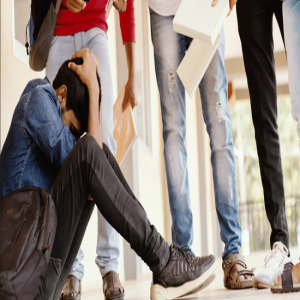

The screams are silent. The bruises fade, but the scars fester. On 12 February, an uncomfortable truth came to light. For three harrowing months, a group of first-year nursing students at a Kerala college were subjected to a campaign of escalating torment, a chilling testament to the enduring brutality of ragging in India's institutions.
Five senior students, barely out of their teens, now face accusations of unspeakable cruelty: binding their juniors, smearing their bodies with lotions, and even carving into their skin with a sharp weapon, forcing them to watch and record the sickening acts.
This isn't an isolated incident, a mere blip on the radar of youthful indiscretion. It's a festering wound, a symptom of a deeper malaise, a culture of complicity that allows such abuse to flourish unchecked. The fact that this horror unfolded within the walls of an institution supposedly governed by anti-ragging protocols exposes a systemic rot.
A subsequent investigation by the Directorate of Medical Education paints a grim picture: a defunct anti-ragging committee, missing records, dereliction of duty by those in authority, and a culture where mere warnings replaced meaningful intervention. While the principal and an assistant professor have been suspended, concrete measures are desperately needed to prevent its recurrence.
Ragging, a barbaric practice, continues to cast a dark shadow over academic institutions, not just in India, but across the globe. It's not some harmless tradition but calculated cruelty and a violation of human dignity that leaves lasting psychological scars. It thrives on power imbalances, preying on the vulnerable.
From humiliating tasks to brutal physical and sexual assaults, the forms of ragging are as varied as they are devastating. Stripping, head shaving, confinement, beatings, destruction of personal property – these are not mere pranks; they are criminal acts that inflict deep and enduring trauma.
The frequent connection between alcohol consumption and these assaults further underscores the toxic, volatile environment that enables such violence.
The human cost of ragging is immeasurable. The tragic, senseless deaths of Siddharthan (Kerala, 2024), Anil (Gujarat, 2024), and Swapnadeep (West Bengal, 2023) serve as stark, haunting reminders of the potential consequences.
Siddharthan's death, after allegedly enduring 29 hours of brutal ragging, speaks volumes about the culture of fear that silences witnesses and transforms bystanders into accomplices. Anil's death, following three hours of alleged "mental and physical" ragging, underscores the brutal, unforgiving reality of this abuse. Swapnadeep's death, amidst allegations of both ragging and institutional instability, highlights the complex, insidious factors that can contribute to such tragedies.
These individual tragedies are not isolated. The statistics paint a disturbing picture. Between January 2023 and April 2024, a staggering 1,240 cases of ragging were reported in India. This follows a worrying trend: 858 complaints in 2022-23 and 582 in 2021-22. While the majority of complaints (82.18%) come from male students, female students (17.74%) and transgender students (0.08%) are also victims. Even more tragically, at least 25 students are known to have died by suicide due to ragging between January 2018 and August 2023.
These numbers are not just cold, hard statistics; they represent shattered lives, broken families, and a profound, unforgivable failure to protect those in our care. And these are just the reported cases; the true, horrifying extent of the problem is likely far greater, hidden beneath a veil of fear and silence.
Just recently, a 20-year-old medical student in Rajasthan faced severe liver and kidney infection, requiring dialysis, due to alleged excessive ragging. He, along with 50-70 other freshers, was allegedly forced to do hundreds of sit-ups by seniors in extreme heat (48 degrees Celsius).
The question echoes: why does ragging persist? It thrives in the shadows, fuelled by power imbalances, a culture of complicity, and weak enforcement of existing anti-ragging laws. The silence of bystanders, often driven by fear of reprisal, further perpetuates this vicious cycle of abuse.
Yet, amidst the overwhelming darkness, there are glimmers of hope.
Recent court decisions upholding expulsions for acts of forced disrobing and obscenity and holding institutional leaders accountable signal a growing commitment to enforcing anti-ragging regulations.
These decisions send a clear, unequivocal message: such abuse will no longer be tolerated.
Eradicating ragging demands a multi-pronged, relentless assault.
Education is critical and indispensable, fostering empathy, respect, and the courage to intervene.
Robust, readily accessible support systems, including confidential reporting mechanisms and trauma-informed services, are essential.
Institutions must enforce ruthless, unwavering accountability, taking swift and decisive action against perpetrators. A fundamental cultural shift is necessary, dismantling toxic, archaic traditions and cultivating a culture of respect. Empowered anti-ragging cells, operating with transparency and clear procedures, are non-negotiable. And the burden of proof must shift decisively: it must lie with the perpetrator, not the victim.
Proactive interventions offer a vital path forward. The case in Madhya Pradesh, where police went undercover to investigate a ragging complaint, demonstrates the power of innovative techniques. The undercover operation, which involved officers posing as medical students and paramedics, revealed a pattern of severe physical and psychological abuse.
While initial investigations had stalled, the undercover team, including a female officer who spent weeks building trust with students, gathered crucial firsthand evidence, ultimately leading to the identification of 11 accused students. This case underscores the effectiveness of proactive measures, the challenges of institutional resistance, and the urgent, critical need for such initiatives.
Ragging is a stain on our collective humanity. It represents the very worst of human nature. We have a moral imperative, a sacred duty, to protect our students and to create safe and respectful learning environments where they can thrive, not just survive.
The time for polite dialogue is over. We must dismantle the culture of silence, challenge the power dynamics that enable this abuse, and demand justice for the victims. Institutions must implement zero-tolerance policies and ensure swift, transparent investigations. Students, educators, policymakers, and parents must unite in this effort, this war against ragging.